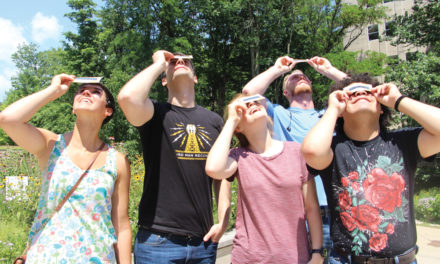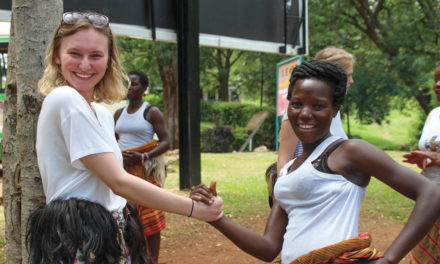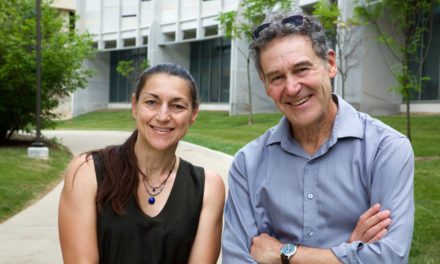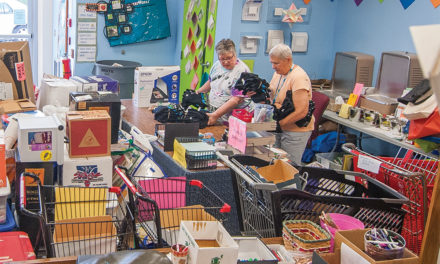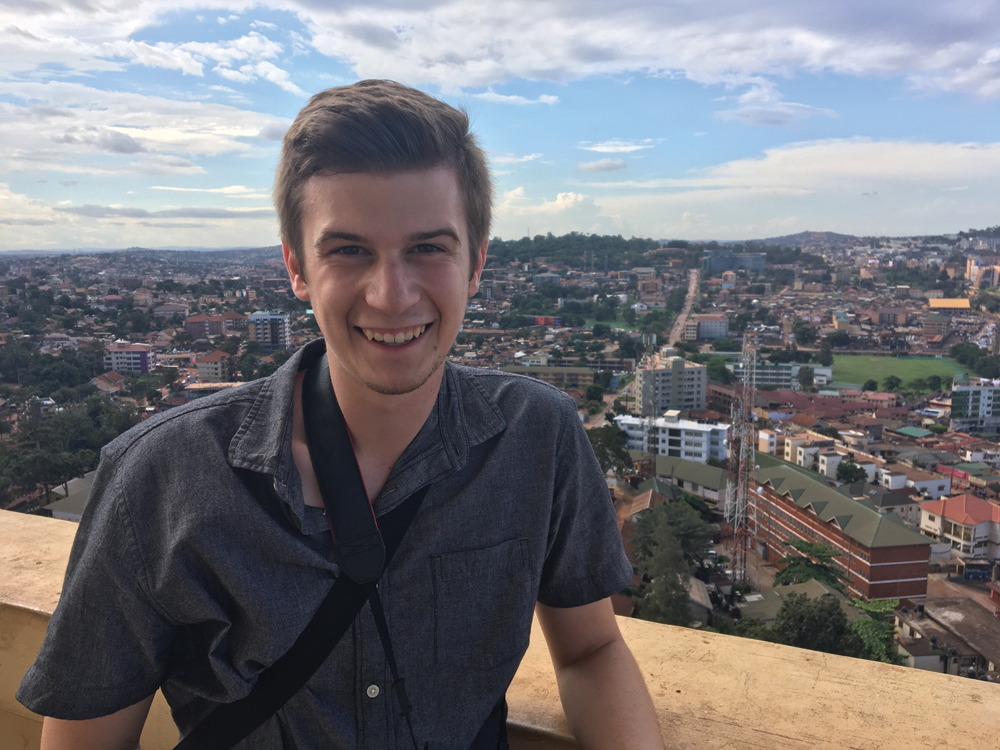
Nick Trombola in the city of Kampala, the capital of Uganda. Courtesy photo
IU Students Spent Month in Uganda Reporting on HIV/AIDS Epidemic
Editor’s note: Indiana University rising seniors Nick Trombola and Sophia Raymond, along with several other students from The Media School, participated in an internship program at the Daily Monitor, reporting on local health issues. This is part one of a two story series; read part two here.
BY NICK TROMBOLA
As my colleague Victor and I traveled along the dirt road from the Ugandan city of Arua to the Bidi Bidi refugee settlement along the South Sudanese border, I confided in him that I was incredibly nervous.
For several weeks, 11 other IU students and I had been working as interns at the Daily Monitor, the largest independent news outlet in Uganda, specifically to write stories relating to HIV. The neighboring country of South Sudan has been locked in civil war for the past four years, so Victor and I decided to cover the access to HIV treatment for the millions of people the conflict has displaced.
I had never been to anything remotely resembling a refugee camp before, let alone one home to more than a quarter of a million people. Yet the situation in Bidi Bidi was not nearly as desperate as I had imagined. While the United Nations and its partners are struggling to keep up with the continuing surge of people entering the camp, for now all of the refugees are treated well and with dignity. Our UN guide said everyone is given a monthly ration, a plot of land to live and farm on, and access to reasonable health care.
Since our main interest was health care, the central health center was our first stop. The aid workers and volunteers do good work there, but because of the sheer number of refugees, the line is almost constantly out the door. One aid worker said they see several hundred patients per day. We talked to children getting vaccinated against prevalent diseases like tuberculosis, mothers who had just given birth in the center’s makeshift maternity ward, and HIV patients picking up their weekly prescriptions of antiretroviral medications.
After talking with NGO [nongovernmental organization] workers, doctors, and the people living here, the most important thing I took away is that the refugees are just normal people in a bad situation. They all have homes they left behind, family members they might never see again, and the dream of a better future for their children.
Nick Trombola is a senior journalism student at Indiana University and hopes to work as a foreign correspondent.


